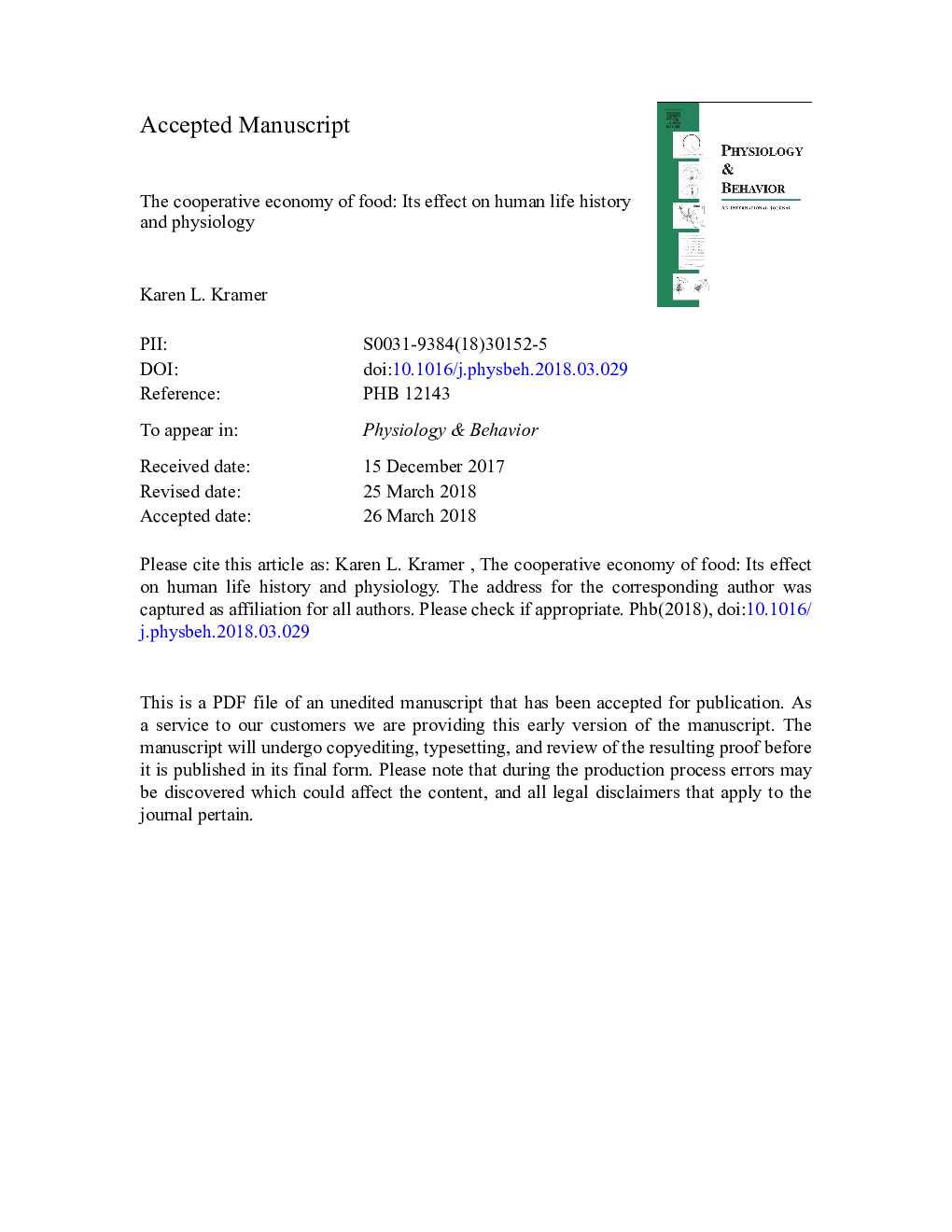| Article ID | Journal | Published Year | Pages | File Type |
|---|---|---|---|---|
| 8650368 | Physiology & Behavior | 2018 | 32 Pages |
Abstract
The human diet has undergone substantial modifications since the emergence of modern humans and varies considerably in today's traditional societies. Despite these changes and cross-cultural differences, the human diet can be characterized by several common elements. These include diverse, high quality foods, technological complexity to acquire and process food, and the establishment of home bases for storage, processing and consumption. Together these aspects of the human diet challenge any one individual to independently meet all of his or her daily caloric needs. Humans solve this challenge through food sharing, labor exchange and the division of labor. The cooperative nature of the human diet is associated with many downstream effects on our life history and physiology. This paper overviews the constellation of traits that likely led to a cooperative economy of food, and draws on ethnographic examples to illustrate its effects on human life history and physiology. Two detailed examples using body composition, time allocation and food acquisition data show how cooperation among Savanna Pumé hunter-gatherers affects activity levels, sexual dimorphism in body fat, maturational pace and age at first birth.
Related Topics
Life Sciences
Biochemistry, Genetics and Molecular Biology
Physiology
Authors
Karen L. Kramer,
